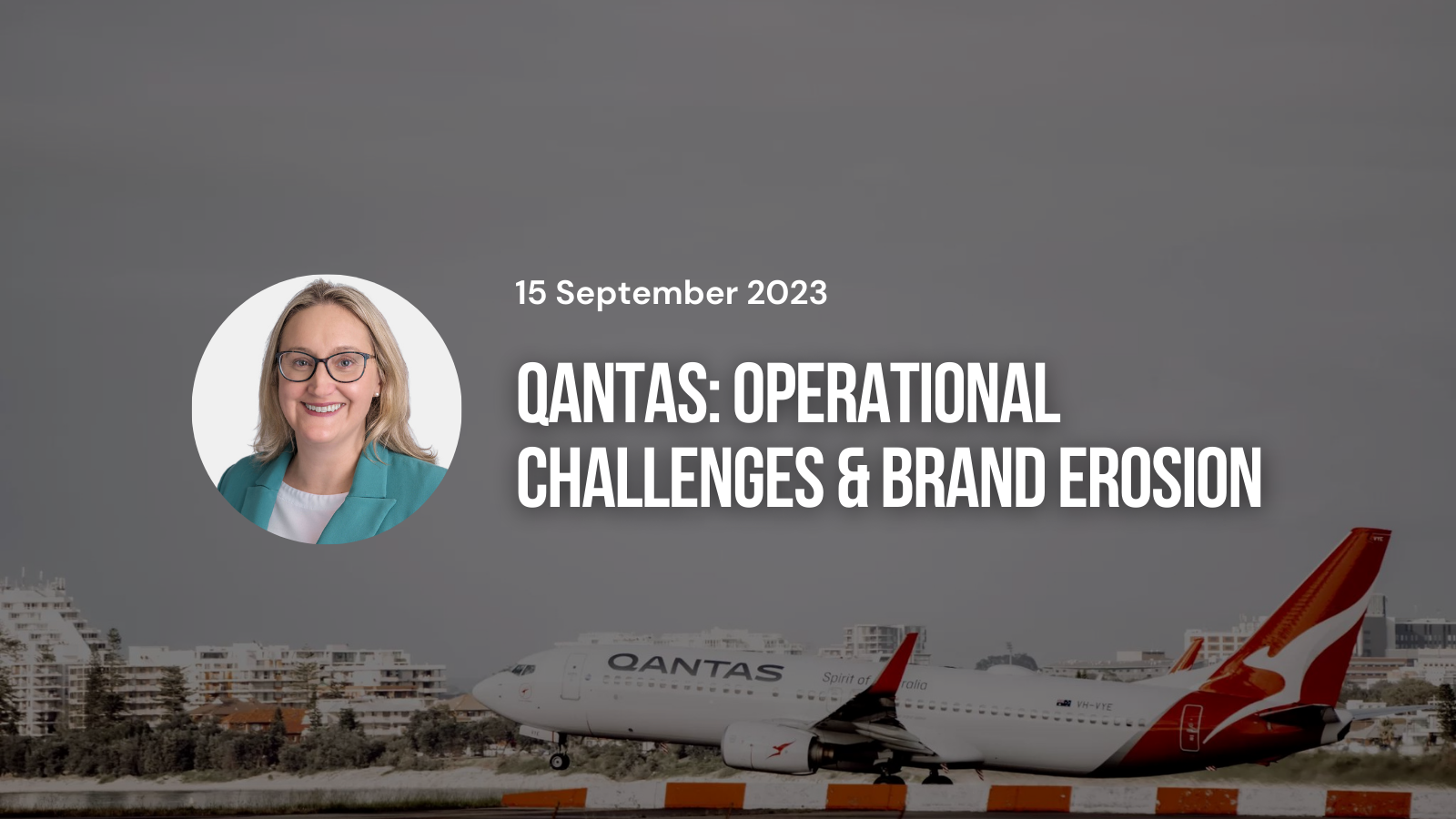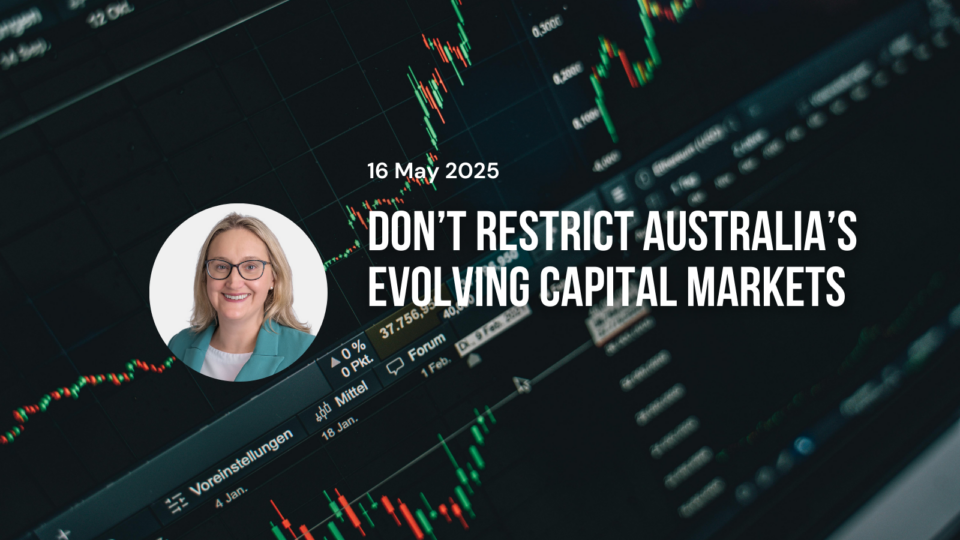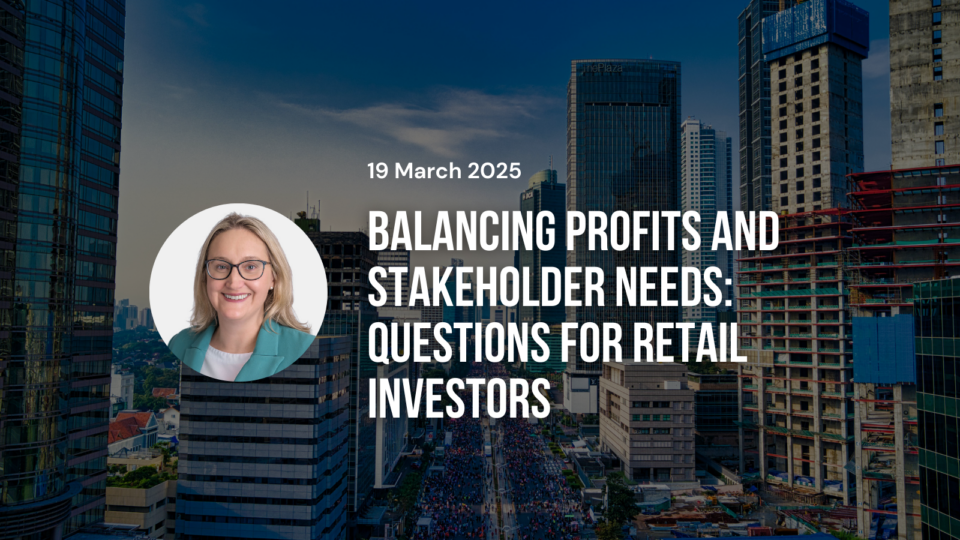

By Rachel Waterhouse, CEO, Australian Shareholders’ Association
15 September 2023
Qantas
Qantas has been in the news lately with many Board and Executive decisions coming under scrutiny.
Staffing
The High Court recently found against Qantas over its decision to sack 1,700 baggage handlers and cleaners and to replace them with external contractors, using the pandemic and cash flow as a rationale.
It has been alleged that the decision was made to save around $180 million annually in labour costs and to circumvent potential industrial action, and it occurred at a time when the company was receiving significant financial support for staffing costs from the Federal Government.
However, while the potential compensation costs and fines may exceed the annual savings, the speculation is that Qantas may still come out financially better off. If that is the case, the decision-making by the CEO and the Board will come under even more public scrutiny.
Operational Challenges and Brand Erosion
A company’s success relies heavily on its reputation and trust among its customers and employees. In a competitive market, deteriorating staff morale can directly translate into a compromised customer experience.
Qantas experienced extreme operational and financial challenges during the COVID-19 pandemic, with the business coming to a standstill. However, the series of decisions that were made subsequently, have impacted staff goodwill and eroded customer trust. Laying off staff, selling cancelled flights, putting barriers in the way of using flight credits, and a lack of a focus on treating the customer well, have all affected the perception of the Qantas brand and undermined employee confidence.
CEO and Board Decisions
Many retail investors believe that the current CEO and Board have directly overseen the degradation of Qantas’s brand. They suggest that the carrier has relied heavily on the company’s dominant market position to shield it from any significant revenue, profit, and share price consequences of its decisions. In light of the potential fines and compensation claims heading towards the airline, the Board’s approval of generous CEO remuneration and bonuses is coming into question and as is the need to make immediate clawback decisions.
Leadership Transition and Potential Conflicts
In assessing the board’s oversighting of the decisions, Richard Goyder’s transition from Wesfarmers’ CEO to Qantas Board director, to Qantas Chair within a year has raised questions of whether he identified too closely with the role of CEO. It appears the board was not structured for an internal succession of the outgoing Chair, Leigh Clifford, which may have contributed to the decisions that have been made.
As the Chair, Goyder, and the other directors must take responsibility for what has happened under their watch. There has been a sense in the market that the Board might have been too deferential to Alan Joyce and may have failed to challenge him sufficiently, leading to decisions that are now potentially harming the airline’s brand.
There are also questions circulating about the wisdom of appointing Vanessa Hudson as the new CEO. If she was part of the previous decision-making team, how can investors be confident that she has the skill and talent to tackle the restoration of trust?
The big question is what should happen with the Board directors and the Chair.
A board should be structured to make the best decisions, oversight strategy, culture, operations, and the appointment of the CEO (including succession or termination). It appears it wasn’t, and a way forward must see some directors stepping down, and recruitment of appropriate directors to carry the company forward. An effective board will be considering succession, how to do this, how to get to its future construction while keeping access to some of the history.
Boards must remember the age-old lesson: no board or CEO is invincible. The role of a Board is to question and hold to account an executive for the decisions they make. Blind trust and groupthink can potentially lead to unfortunate decisions that have long-term consequences for a company’s brand and reputation.
The future of the Board and the Executive is one for Qantas shareholders with the board needing to show leadership and put forward a plan of renewal. The challenge will be to create an appropriate culture and to restore trust with consumers, employees, and investors.





